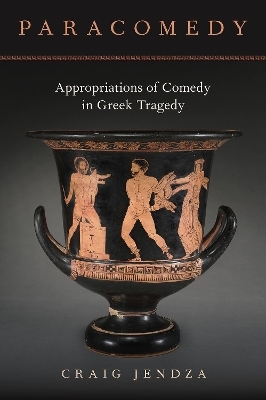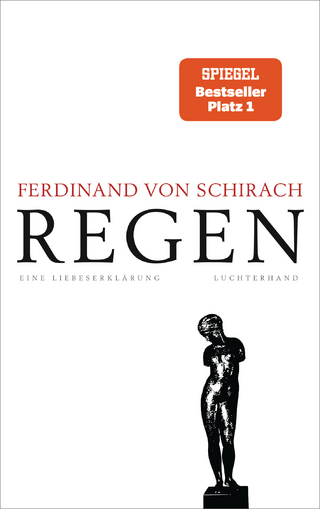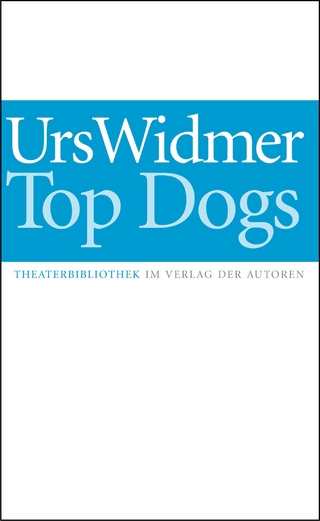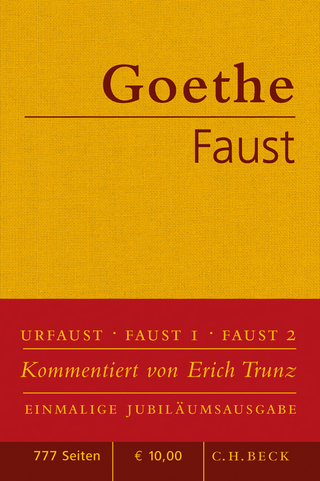
Paracomedy
Oxford University Press Inc (Verlag)
978-0-19-009093-7 (ISBN)
Paracomedy: Appropriations of Comedy in Greek Drama is the first book that examines how ancient Greek tragedy engages with the genre of comedy. While scholars frequently study paratragedy (how Greek comedians satirize tragedy), this book investigates the previously overlooked practice of paracomedy: how Greek tragedians regularly appropriate elements from comedy such as costumes, scenes, language, characters, or plots. Drawing upon a wide variety of complete and fragmentary tragedies and comedies (Aeschylus, Sophocles, Euripides, Aristophanes, Rhinthon), this monograph demonstrates that paracomedy was a prominent feature of Greek tragedy.
Blending a variety of interdisciplinary approaches including traditional philology, literary criticism, genre theory, and performance studies, this book offers innovative close readings and incisive interpretations of individual plays. Jendza presents paracomedy as a multivalent authorial strategy: some instances impart a sense of ugliness or discomfort; others provide a sense of light-heartedness or humor. While this work traces the development of paracomedy over several hundred years, it focuses on a handful of Euripidean tragedies at the end of the fifth century BCE. Jendza argues that Euripides was participating in a rivalry with the comedian Aristophanes and often used paracomedy to demonstrate the poetic supremacy of tragedy; indeed, some of Euripides' most complex uses of paracomedy attempt to re-appropriate Aristophanes' mockery of his theatrical techniques. Paracomedy: Appropriations of Comedy in Greek Tragedy theorizes a new, ground-breaking relationship between Greek tragedy and comedy that not only redefines our understanding of the genre of tragedy, but also reveals a dynamic theatrical world filled with mutual cross-generic influence.
Craig Jendza is an Assistant Professor of Classics at the University of Kansas. His research and teaching cover a wide variety of topics, including Greek drama, mythology, magic, linguistics, humor and horror.
Preface
Note to the Reader
Introduction
Chapter 1: Understanding Paracomedy
1.1 The Question of Methodology
1.2 The Question of Motivation
1.3 The Question of Distribution
Chapter 2: Early Paracomedy
2.1 Aeschylus' Oresteia and Old Comedy
2.2 The Paracomic Heracles in Euripides' Alcestis
2.3 The Paracomic Heracles in Euripides' Heracles
2.4 Conclusion
Chapter 3: From Rags to Drag: Paracomic Costuming
3.1 Dressing in Rags: Aristophanes' Acharnians and his Critique of Euripides
3.2 Dressing in Rags: Euripides' Helen and the Re-appropriation of Acharnians
3.3 Dressing in Drag: Aristophanes' Women at the Thesmophoria and his Critique of Euripides
3.4 Dressing in Drag: Euripides' Bacchae and the Re-appropriation of Women at the Thesmophoria
3.5 Conclusion
Chapter 4: Paracomedy and the Structure of Euripides' Helen
4.1 The Structure of Helen
4.2 Phase 1: "Helen", A Play with a Tragic Character (1-385)
4.3 Phase 2: "Menelaus", A Play with a Comic Character (386-527)
4.4 Phase 3: "Helen" vs. "Menelaus", Tragedy vs. Comedy (527-1106)
4.5 Phase 4: "Helen" Victorious (1107-1692)
4.6 Conclusion
Chapter 5: Euripides' Orestes: A Paracomic Play
5.1 The Parodos of Orestes and the Parodos of Peace
5.2 Orestes and Women at the Thesmophoria's Parody of Helen
5.3 Orestes and Women at the Thesmophoria's Parody of Palamedes
5.4 Orestes and Women at the Thesmophoria's Parody of Andromeda
5.5 Orestes and Women at the Thesmophoria's Parody of Telephus
5.6 The Conclusion of Orestes and the Conclusion of Clouds
5.7 Conclusion
Chapter 6: Paracomedy and Relative Chronology
6.1 Paracomedy or Paratragedy?
6.2 Euripides' Antiope and Aristophanes' Women at the Thesmophoria
6.3 Conclusion
Chapter 7: The Aftermath of Paracomedy
7.1 Rhesus and the Imitation of Paracomedy
7.2 Rhinthon's Hilarotragedies
7.3 Pollux's Tragic Parabases
Conclusion
Bibliography
Index Locorum
General Index
| Erscheinungsdatum | 07.05.2020 |
|---|---|
| Verlagsort | New York |
| Sprache | englisch |
| Maße | 236 x 163 mm |
| Gewicht | 680 g |
| Themenwelt | Literatur ► Lyrik / Dramatik ► Dramatik / Theater |
| Geisteswissenschaften ► Sprach- / Literaturwissenschaft ► Anglistik / Amerikanistik | |
| Geisteswissenschaften ► Sprach- / Literaturwissenschaft ► Literaturwissenschaft | |
| ISBN-10 | 0-19-009093-6 / 0190090936 |
| ISBN-13 | 978-0-19-009093-7 / 9780190090937 |
| Zustand | Neuware |
| Haben Sie eine Frage zum Produkt? |


